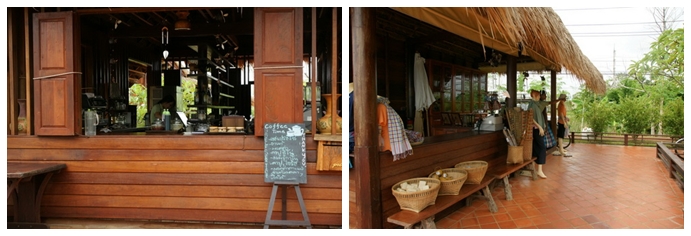- Home
- Key Projects
- Kasornkasiwit School
- Project
- Kasornkasiwit
- Kasornkasiwit - Implementation
Kasornkasiwit - Implementation
Implementation
According to the royal initiative, the Kasornkasiwit School would serve as a training school for water buffalos to enable them to plough and work in agriculture. Training would also be offered to their owners and interested public who wish to obtain the skills in working with buffaloes for agriculture and knowledge for maintenance of buffaloes. In addition, the School would serve as a centre for general information concerning the folk and simplistic way of living in tune with His Majesty the King’s Philosophy of Self-Sufficiency.
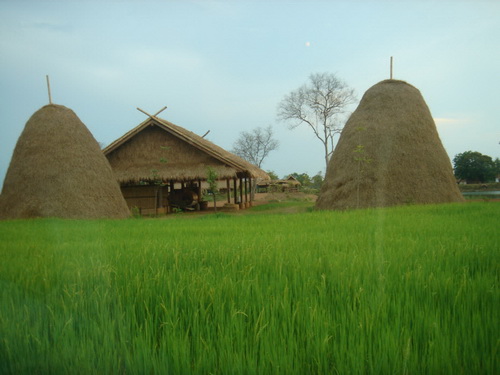
Farmers & Buffaloes Training
The Kasornkasiwit School has a pool of local experts who are the source of agricultural knowledge and willing to share their expertise with farmers and the general public keen on using buffaloes in agriculture. The aim of the buffaloes training course is to tame the animals and teach them to plough efficiently. For farmers, the school offers a course that will enable them to be familiar with and to instruct the buffaloes as well as to apply the equipments in ploughing and take good care of the animals. In addition, the farmers will be informed of the integrated planting of animal food and the concept of self-sufficiency.
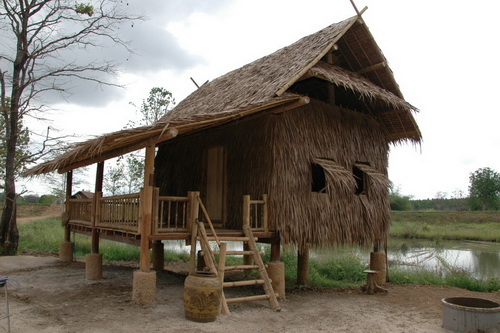
Living Agricultural Exhibition
A space was developed into a living exhibition to display the paddy farming appliances from the ancient times, which were invented by Thai folk wisdom and have been used in actual agriculture within the School.
Rice Paddy Plot
The Kasornkasivit School has a plot of land for growing rice at different timing to learn of the growing process. In addition to rice, other plants are integrated into the plot in order to optimize the land and fertilize the soil without the use of chemicals.
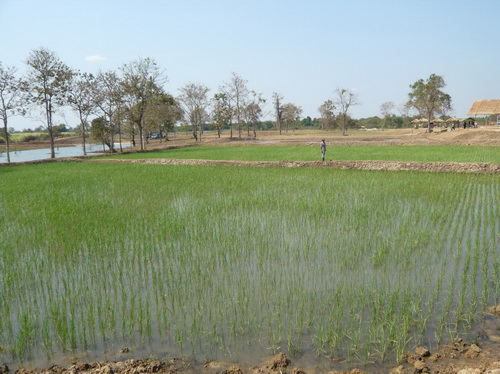
Marum Rom Rak Lake
The Chaipattana Foundation had developed a lake area measuring approximately 12 rais to be located in front of the Kasornkasiwit School. On 10 March, 2009, Her Royal Highness Princess Maha Chakri Sirindhorn went to set free 9 varieties of Thai fish in the total of 905. Surrounding the lake are agricultural terraces used in vetiver grass farming to cultivate sloped land and prevent soil erosion. In addition to the vetiver grass, other plants have been grown, especially Moringa (Moringa oleifera or commonly known as Marum) and Calotropis gigantean (also commonly known as Crown flowers or Rak), which gave birth to the title Marum Rom Rak.
Edible Plants
All plants grown in the Kasornkasivit School are edible, including fruits, herbs and other trees. Among these plants are Moringa (Marum), corkwood trees (Khae), Siamese cassia (Khee Lek), Acacia pennata (Cha-om), Morinda citrifolia (Yor), Garcinia schomburgkian (Madan), mango trees, Star Gooseberry (Mayom), Water Apple (Chom phoo), jackfruit, Marian plums (Mayong chid or Ma Prang), Jambolan (Wah), banana trees, sugar cane, olive trees, Cardamom (Krawan), cinnamon, galangal, lemongrass, bamboo trees, and Chaulmoogra (Krabow) from Srapathum Palace which Her Royal Highness planted as an auspicious plant in front of the School’s office on 10 March, 2009.
Clay Houses
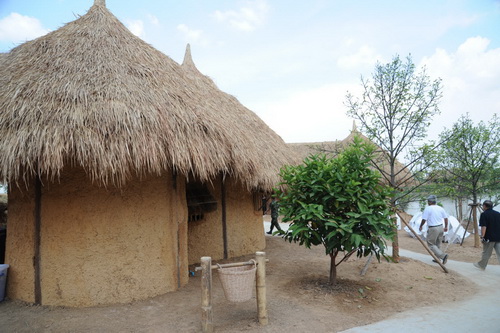
Clay houses built at the Kasornkasiwit School are the accommodations provided for the participants and speakers taking part in the training. They also serve as the model houses of the Kasornkasivit School for the participants who wish to duplicate as their own by using local construction materials.
Kwai Kanong Coffee Shop
Her Royal Highness made a suggestion that the Kasornkasiwit School open the Kwai Kanong (Energized Buffaloes) Coffee Shop to serve coffee and other beverages and sell community products.
